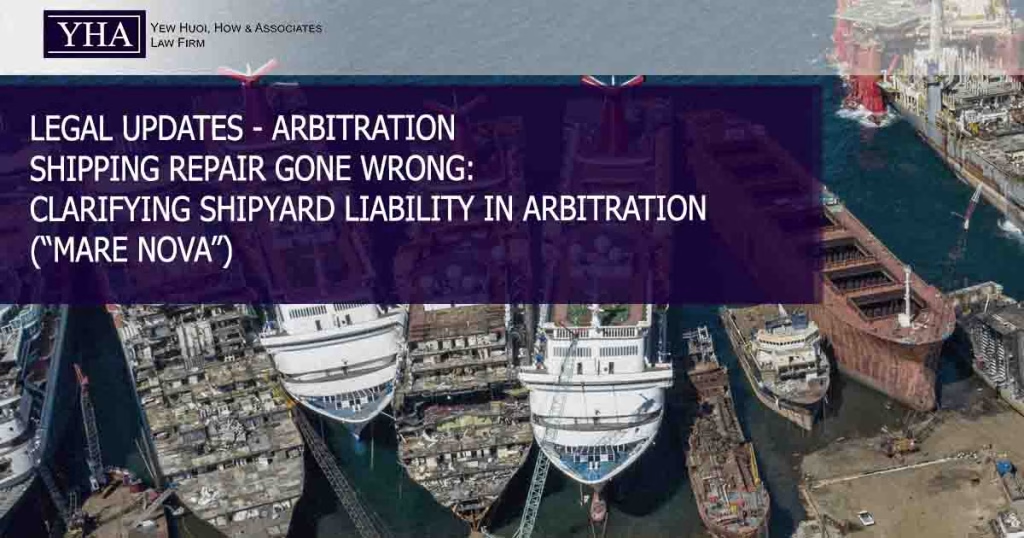1. Summary and Facts
Mare Nova Inc v Zhangjiagang Jiushun Ship Engineering Co Ltd [2025] 1 Lloyd’s Rep 245, involved a dispute over defective ship repairs performed by Zhangjiagang Jiushun Ship Engineering Co Ltd on the vessel Mare Nova, owned by Mare Nova Inc. Following repair work, damage due to incorrect alignment of the intermediate shaft bearing was discovered shortly after the vessel left the shipyard. Mare Nova initiated arbitration, claiming damages for breach of contract and negligence. The arbitrator partially rejected the claim, citing contractual clauses that purportedly discharged liability once the vessel left the yard. Mare Nova challenged the arbitration award for serious irregularity and error of law.
2. Legal Issues
• Whether the arbitrator committed a serious irregularity under Section 68 of the English Arbitration Act 1996 by determining an issue (discharge of liability) not previously raised.
• Whether the arbitrator erred in law under Section 69 of the Arbitration Act 1996 by interpreting contractual clauses (2.1 and 6.3) as discharging the shipyard’s liability immediately after the vessel departed.
3. Court’s Findings
• The UK court upheld the challenge under Section 68, ruling that the arbitrator’s decision to discharge liability without allowing the claimant to address this issue constituted a serious procedural irregularity causing substantial injustice.
• However, the Section 69 appeal was dismissed on procedural grounds, although the court confirmed the arbitrator’s legal interpretation of clauses 2.1 and 6.3 was incorrect. The court clarified that:
a. Clause 2.1 imposed obligations regarding workmanship quality without limiting liability after delivery for breach of contract.
b. Clause 6.3 pertained to the period of the shipyard’s responsibility as a bailee, not discharging accrued liabilities for breach of contract.
• The court remitted the award to the arbitrator for reconsideration, instructing the reconsideration to proceed on the corrected interpretation of the law.
4. Practical Implications
Arbitrators must clearly raise and allow submissions on all material points. Contractual clauses limiting liability must use explicit, unequivocal wording to negate standard legal remedies for breach. This case emphasizes courts’ reluctance to interpret ambiguous clauses as absolving parties of accrued liabilities without clear language.

